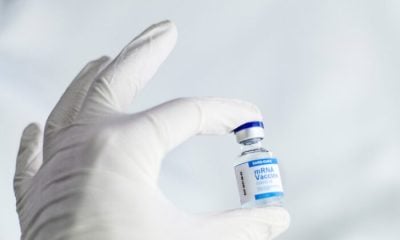Important Study: mRNA COVID Vaccines Dramatically Increase Endothelial Inflammatory Markers and Acute Coronary Syndrome (ACS) Risk as Measured by the PULS Cardiac Test: A Warning

All Global Research articles can be read in 51 languages by activating the “Translate Website” drop down menu on the top banner of our home page (Desktop version).
To receive Global Research’s Daily Newsletter (selected articles), click here.
Visit and follow us on Instagram at @crg_globalresearch.
GR Editor’s Note
Some Definitions quoted in this important study
ACS: Acute coronary syndrome
Acute coronary syndrome is a term used to describe a range of conditions associated with sudden, reduced blood flow to the heart.
One such condition is a heart attack (myocardial infarction) — when cell death results in damaged or destroyed heart tissue. Even when acute coronary syndrome causes no cell death, the reduced blood flow changes how your heart works and is a sign of a high risk of heart attack. Mayo Clinic
PULS TEST: Protein unstable lesions
The PULS test (Protein Unstable Lesion Signature Test) measures the most clinically-significant protein biomarkers that measure the body’s immune system response to arterial injury.
Seventy-five percent of heart attacks are caused by unstable cardiac lesion ruptures. Detecting the presence of these lesions can be an indicator of your overall heart health and predict your risk for having a heart attack. (Life Lab)
***
Abstract
Our group has been using the PLUS Cardiac Test (GD Biosciences, Inc, Irvine, CA) a clinically validated measurement of multiple protein biomarkers which generates a score predicting the 5 yr risk (percentage chance) of a new Acute Coronary Syndrome (ACS).
The score is based on changes from the norm of multiple protein biomarkers including IL-16, a proinflammatory cytokine, soluble Fas, an inducer of apoptosis, and Hepatocyte Growth Factor (HGF)which serves as a marker for chemotaxis of T-cells into epithelium and cardiac tissue, among other markers. Elevation above the norm increases the PULS score, while decreases below the norm lowers the PULS score.The score has been measured every 3-6 months in our patient population for 8 years.
Recently, with the advent of the mRNA COVID 19 vaccines (vac) by Moderna and Pfizer, dramatic changes in the PULS score became apparent in most patients.
This report summarizes those results. A total of 566 pts, aged 28 to 97, M:F ratio 1:1 seen in a preventive cardiology practice had a new PULS test drawn from 2 to 10 weeks following the 2nd COVID shot and was compared to the previous PULS score drawn 3 to 5 months previously pre- shot. Baseline IL-16 increased from 35=/-20 above the norm to 82 =/- 75 above the norm post-vac; sFas increased from 22+/- 15 above the norm to 46=/-24 above the norm post-vac; HGF increased from 42+/-12 above the norm to 86+/-31 above the norm post-vac. These changes resulted in an increase of the PULS score from 11% 5 yr ACS risk to 25% 5 yr ACS risk. At the time of this report, these changes persist for at least 2.5 months post second dose of vac.
We conclude that the mRNA vacs dramatically increase inflammation on the endothelium and T cell infiltration of cardiac muscle and may account for the observations of increased thrombosis, cardiomyopathy, and other vascular events following vaccination.
emphasis added
*
Note to readers: Please click the share buttons above or below. Follow us on Instagram, @crg_globalresearch. Forward this article to your email lists. Crosspost on your blog site, internet forums. etc.
Featured image: A hand holding an mRNA vaccine vial. (Spencer Davis / Unsplash)

